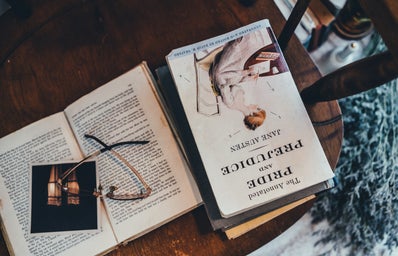If you’ve been online lately (or even for a while now), it is highly improbable that you wouldn’t have stumbled across the phrase Dark Academia. You might have wondered what it meant. Maybe you scrolled past the very next moment, or maybe you’re like me; meaning, you ended up looking it up online and gradually found yourself descending down a rabbit hole because it felt catered to your own stylistic choices. Okay, that might have gotten a bit too specific but you get it, right?
Dark Academia is an aesthetic that popped up in online spaces a couple of years back. As almost every aesthetic does, it originated on Tumblr but there has been a significant spike in its popularity the past year. To begin with, academia is defined as ‘the environment or community concerned with the pursuit of research, education, and scholarship.’ But what’s so dark about it? Well, the added spice of murder, cults, danger, and secret club does add to the aforementioned darkness. Don’t worry, nobody here is condoning killing people, it’s just fanciful admiration at fictional media that does so.
All in all, dark academia can be branched into two flows. The first is the kind of content consumed, more on that in a jiffy. The second is the fashion aspect of it all. To dress as a dark academic is to dress in neutral shades like browns, black and beige. It’s about dressing like a college student (albeit reminiscent of a 20th-century man living in England.) Dark academia fashion puts a spin on preppy styles but without any fancy name brands. DA clothing pieces are ones that are more often than not found in your staple wardrobe and are quite simple, to say the least.
The other aspect of this aesthetic is the media consumed by the partakers. Literature is one of its key pillars. Today, there is a whole genre of books that get classified under the term Dark academia. Of course, most of them are staples to any dark academic’s reading list, but it all started with a love for Classics. Influences ranging from cultures of the Renaissance, Baroque, and Romanticism are appreciated are quite popular. But the notable kickstart to this aesthetic was provided by Donna Tartt’s book The Secret History which revolves around six students (and their teacher) who get involved in secrets, rituals, and mysteries far beyond an average college student. Despite being nothing extra-ordinary academically, there’s an air of superiority to these students just because of the way they conduct themselves. If nothing else, it surely is fascinating. Other staples of the genre include These Violent Delights (Micah Nemerever), If We Were Villains (M.L. Rio), The Atlas Six (Olivie Blake), Ninth House (Leigh Bardugo), A Lesson in Vengeance (Victoria Lee), and Ace of Spades (Faridah Àbíké-Íyímídé) amongst others. Sketchy and dangerous activities in an academic setting? Yep, that’s a dark academia book right there.
Dark academia is sipping black coffee while doing your assignments, it is listening to Chopin as you prepare for a test. It is being a little pretentious just for the joy of it in a world that constantly demands you to do your best. But at the end of the day, it is nothing too deep, just an aesthetic. In no way is it a guidebook to define your life by. So, pick and choose, love! Take from it what makes you feel good about yourself and leave the rest. As Donna Tartt says: “Does such a thing as ‘the fatal flaw,’ that showy dark crack running down the middle of a life, exist outside literature? I used to think it didn’t. Now I think it does. And I think that mine is this: a morbid longing for the picturesque at all costs.”


